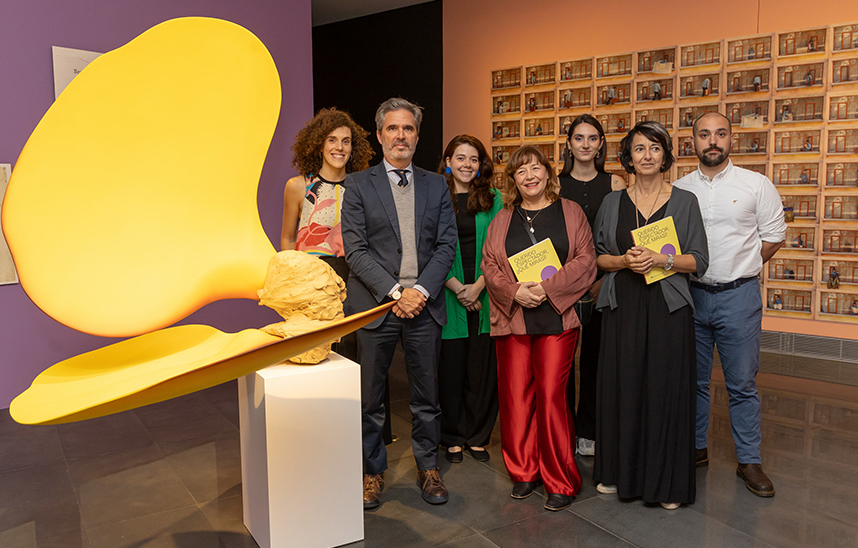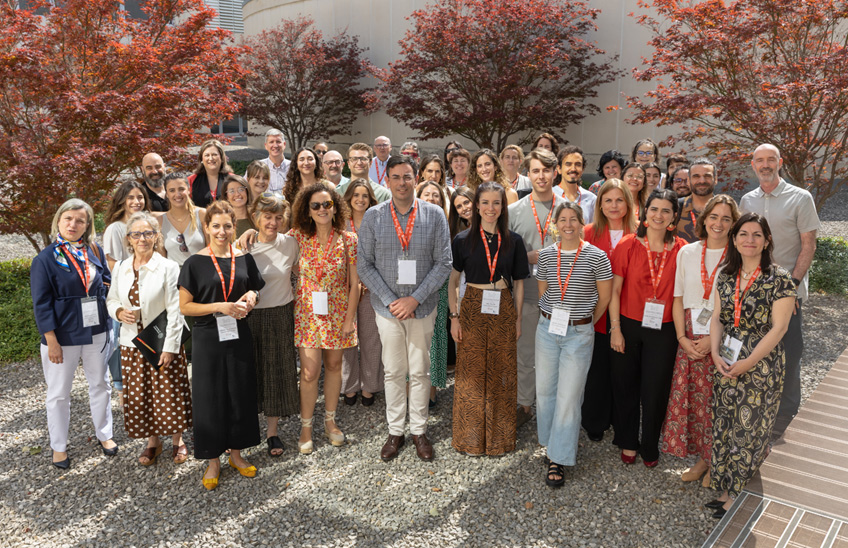Javier Sánchez Cañizares: "Science is a spiritual activity characterized by unconditional openness".
The researcher of the 'Mind-brain' group of the ICS has published the book 'How the spirit acts in the world", an exploration of God and the soul in the context of contemporary science.

FotoLeire Escalada<br>/Javier Sánchez Cañizares, con el libro que acaba de publicar.
19 | 05 | 2025
Javier Sánchez Cañizares (Córdoba, 1970), researcher of the 'Mente-cerebro'group of the Institute for Culture and Society (ICS) of the University of Navarra, conceives science as an adventure, "the adventure of human knowledge ". In this sense, he explains that "the human being is the only species we know that is interested in the whole world, not simply in its small environment. He wants to know the universe and that is the driving force behind science. For this reason, he considers that "it is also a spiritual activity, characterized by an unconditional openness, which entails entering into a problem and seeing where it takes you". It is with this perspective that he approaches his new book, How the Spirit Acts in the World (Ediciones meeting, 2025), a work that proposes an exploration of God and the soul in the context of contemporary science.
The essay, which aims to redefine the boundaries between the scientific and the spiritual, can be seen, in itself, as an adventure: a path full of questions that invite the reader to reflect on knowledge, science, the soul and revelation. Cañizares, doctor in Physics and Theology, questions in this work why current science forgets the spiritual or even sometimes science and the spiritual come to be presented as antagonistic worlds.
The author, starting from a historical journey through thinkers of different periods, argues that "the scientific worldview is changing and there is room to explain what we mean when we say that the soul of the human being is spiritual or that God acts in the world without violating physical causality". Thus, he points out that "physical causality needs immaterial causality, the selection of possibilities that is taking place in nature, increasingly determined processes that open, in turn, new possibilities". In this sense, he stresses that "causality is something plural": "We cannot identify it only with physical, material or efficient causality, but it is something broader". The work proposes, precisely, that "it is the action of formal, immaterial causality that financial aid selection, that there are concrete determinations".
Searching for the truth
Cañizares also points out that "perhaps the world is less spiritual because it is less interested in knowing and seeks more security. But what is proper to human beings is to want to know and seek the truth. And he points to listening as a core topic to narrow the distance between science and the immaterial: "I believe that believers should listen to scientists and their advances, and scientists, as people, should be open to the message of transcendence that is transmitted from religion or Philosophy".
In this line, he values that "in the end, they are closer than it seems. Scientists, philosophers and theologians are all interested in the truth. Believers have faith, not because it is useful, but because we think that what we believe is true. And scientists think that what they know is also true. How can we not talk to each other?
That is why, far from sharing a message of discouragement, How the Spirit Works in the World is full of hope: "Building bridges to other languages is good for all of us and does not mean renouncing one's own language. Although it requires effort, I believe that, in the long run, it is worth it because it means trying to understand others and to make yourself understood by others". For the author, this attitude "must be in the heart of both the scientist and the believer, let alone if both are combined. You have to put yourself in the other person's place.


